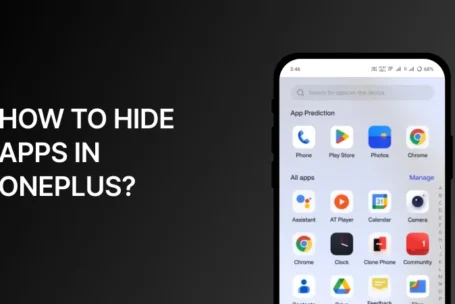Google has become an important part of our daily lives. It is hard to picture life without this tech giant. We use it to find information and find our way around. But have you ever thought about how much Google controls the life of an average person?
Today, we will talk about all the various ways Google shapes our decisions, habits, and routines. Let’s begin!
Google Controls Life with Google Search
The first thing most people do when they have a question is “Google it.” Google’s search engine processes over 8.5 billion searches daily, offering instant answers to almost anything.
- Information Dependence: People rely on Google for educational, professional, and personal queries.
- Tailored Results: Its algorithm analyses your past searches and personalizes results to match your preferences.
This heavy reliance often means Google decides what information you see first, shaping opinions and choices subtly.
Android and Google’s Ecosystem
For those with Android devices, Google plays an even bigger role. Android powers over 70% of the world’s smartphones, giving Google access to vast amounts of data.
- Built-In Apps: Most users default to pre-installed Google apps like Gmail, Maps, and YouTube.
- Google Assistant: A voice command tool that manages tasks, schedules, and even connects with smart home devices.
This integration keeps users connected to Google services 24/7.
Navigating the World with Google Maps
Google Maps has revolutionized navigation. It’s not just about finding routes anymore – it influences our travel decisions in multiple ways.
- Route Optimization: Suggests the fastest or most efficient paths.
- Recommendations: This feature highlights restaurants, attractions, and shops based on location and user reviews.
- Traffic Data: Provides real-time updates, helping users avoid delays.
Google has a secondary effect on the places we go and how we get there because it helps us navigate.
Google Controls Life and Online Entertainment
Platforms like YouTube and Google Play dominate online entertainment.
- YouTube is the second-largest search engine in the world, and its algorithm determines what content it recommends.
- Google Play: A go-to store for apps, games, and movies, it dictates what’s available for Android users.
Google can predict and offer content that will keep users interested for hours by looking at what they watch and buy.
Google’s Role in Communication
Gmail and Google Meet are essential tools for communication. Gmail alone has over 1.5 billion active users.
- Email Management: Filters emails into categories like Primary, Social, and Promotions, prioritizing certain messages over others.
- Meetings and Calls: With Google Meet, video conferencing has become more accessible, especially for professionals and students.
These services not only connect people but also influence how and when we communicate.
Personalized Advertising
One of Google’s primary revenue streams is advertising. The company uses tools like Google Ads to keep track of what users do so they can show them relevant ads.
- Search and Browsing Data: Ads appear based on your search history and online behavior.
- YouTube Ads: Tailored to your interests, ensuring you watch content that aligns with your preferences.
This advertising model often influences buying decisions, shaping consumer behavior on a global scale.
Google’s Impact on Productivity
Google Workspace, which includes tools like Docs, Sheets, and Drive, is a productivity powerhouse.
- Collaboration Tools: Enables teams to work together in real time.
- Cloud Storage: Makes files accessible from anywhere.
- Calendar Integration: Helps manage schedules efficiently.
Google is very much helping people to become more productive by giving them these tools. Also, they are making sure that everyone does things the same way all around the world.
Concerns About Google Control on Life
While Google’s services offer convenience, its pervasive presence raises concerns:
- Data Privacy: Google collects extensive data, including browsing history, location, and personal preferences.
- Monopoly: Its dominance in search, advertising, and mobile platforms limits competition.
- Algorithm Bias: The content you see may not always be neutral or comprehensive.
These factors highlight the need for awareness about how much control Google has over personal and societal decisions.
How to Regain Control?
It’s possible to use Google services while maintaining some independence. Here are a few tips:
- Customize Privacy Settings: Adjust your account settings to limit data sharing.
- Explore Alternatives: Use other search engines like DuckDuckGo or alternative apps for navigation and email.
- Be Mindful: Understand how your data is used and question whether you need certain services.
You can depend less on Google without giving up ease by following these steps.
Conclusion
It is clear that Google has changed the lives of most people. It affects almost every part of modern life, from making things easier to making decisions. Its services make life easier, but it is important to know what is going on and make sure that this power does not hurt your privacy or freedom of choice. You can use Google’s tools to their fullest while still keeping control of your digital life if you are aware of how you do it.



